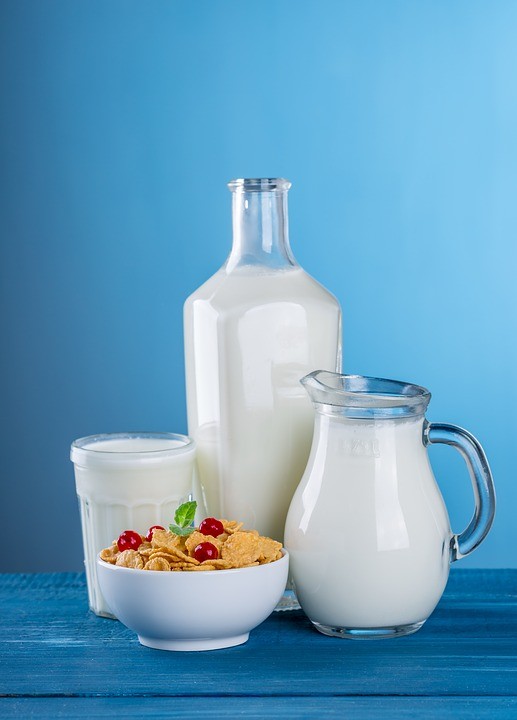By Ana Verayo, | April 15, 2017

Scientists say that when you remove entire food groups during early adult development, this increases the risk of developing osteoporosis during late adulthood.
Researchers have found that teenagers and young adults are practicing a new dairy free diet that can put their health at risk. This alarming new diet trend could ultimately lead to poor bone health and osteoporosis.
According to the National Osteoporosis Society in the U.K., researchers found that out of 70 percent of people aged 18 to 35 years old who are currently dieting, 20 percent of them have significantly reduced their dairy intake or have completely removed dairy products like milk, cheese, and eggs entirely from their diet. Dairy products are a vital source of calcium which promotes bone strength and growth.
Like Us on Facebook
According to Susan Lanham-New of the National Osteoporosis Society and the University of Surrey, early adulthood diet is crucial for overall skeleton development. The effects of poor diet and nutritional deficiencies can no longer be reversed when we hit our late twenties, so loading up on dairy during this period is important to build bone strength.
This new diet is apparently called "clean eating" and is commonly practiced among those who are 25 or younger. The goal of the practice is to eat clean by completely removing major food groups from your daily diet.
In this new study, researchers also found that dieters under 25 years old are most likely to be influenced by health and nutrition bloggers on social media. The team warned that fad diets, which are being promoted on social networks without enough scientific backup and health precautions, could have a significant impact on the future health of teens and young adults.
Scientists say that when you remove entire food groups during early adult development, this increases the risk of developing osteoporosis during late adulthood. This is the time when the foundation of healthy bones are developed.
Signs of osteoporosis become evident in adults older than 50. This is prevalent in more than half of all women and one in five men. It can cause bones to be more fragile and to break more easily.
"We can potentially face a future where weak and broken bones are normal if we do not take action and encourage our young adults to incorporate all food groups into their diets, avoiding this "clean eating" diet trend. Osteoporosis is painful and debilitating condition, and this is a time when young adults have the chance to develop strong bones and greatly reduce this risk," Lanham-New said.
-
Use of Coronavirus Pandemic Drones Raises Privacy Concerns: Drones Spread Fear, Local Officials Say

-
Coronavirus Hampers The Delivery Of Lockheed Martin F-35 Stealth Fighters For 2020

-
Instagram Speeds Up Plans to Add Account Memorialization Feature Due to COVID-19 Deaths

-
NASA: Perseverance Plans to Bring 'Mars Rock' to Earth in 2031

-
600 Dead And 3,000 In The Hospital as Iranians Believed Drinking High-Concentrations of Alcohol Can Cure The Coronavirus

-
600 Dead And 3,000 In The Hospital as Iranians Believed Drinking High-Concentrations of Alcohol Can Cure The Coronavirus

-
COVID-19: Doctors, Nurses Use Virtual Reality to Learn New Skills in Treating Coronavirus Patients







